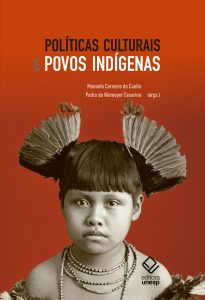An Ethnographic Study of Cultural Policies from and for Brazilian Indians
The book brings together nineteen essays that seek to identify and examine the cultural policies practiced upon Brazil’s Indians, and the cultural policies practiced by the Indiagenous people – and some others that indirectly impinge on them

“There are cultural policies for the Indians, and there are cultural policies from the Indians. They are not the same,” declares the anthropologist Manuela Carneiro da Cunha, the organizer, along with Pedro de Niemeyer Cesarino, of Cultural Policies and Indigenous Peoples [Políticas culturais e povos indígenas], winner of the Jabuti Prize in 2015 in the category Human Sciences, published by Editora Unesp.
The book brings together nineteen essays that seek to identify and examine the cultural policies practiced upon Brazil’s Indians, and the cultural policies practiced by the Indians – and some others that indirectly impinge on them. The essays deal with these types of policies and practices, but also their points of contact and combined effects.
The outcomes of these types of policies and practices are sometimes obvious, but in other instances can be very subtle. Because of this, the studies are grounded in ethnographies. Their merit lies in the way they focus on the highly specific nature of particular experiences, with a resulting caution against generalizations. “There are, indubitably, similarities among indigenous societies in Brazil, even among some that are widely separated geographically, with no linguistic connections. But these connections do not result in homogeneity. We cannot generalize conclusions,” warns the organizer, in praise of the particular and the specific. From this starting point the book develops, seeing past apparent similarities to the singular and ineffable, enabling our own latent capacities for “estrangement.”
The legal right of Brazil’s Indians to formulate their own cultural policies was guaranteed firstly by the Constitution of 1988. Until then, there have been projects and proposals aimed at what was understood to be the “integration” of indigenous populations into Brazilian life. But “integration,” the authors insist, was nothing more than a euphemism for a program of cultural homogenization and ethnic dissolution.
Destined to those who are engaged in the study of cultural politics, the book raises and reflects on such difficult questions as: What are adequate relationships between indigenous societies and their schools, between the kinds of knowledge that enable the Indians to better negotiate Brazilian society, on one hand, and their traditional understandings and practices, on the other, between an oral tradition and a written one? Is it actually possible to teach “culture” in a schoolroom?
The Organizers

Manuela Carneiro da Cunha is an anthropologist. She earned her doctorate, then taught at the State University of Campinas (1973-1984). She became a titular professor, first at University of São Paulo (1984-1994), then at University of Chicago (1994-2009). She is a member of the Brazilian Academy of Sciences. In 2011-2012, she held a chair in the Collège de France, upon “Savoirs contre pauvreté”. (Knowlege against poverty). She has received various prizes, among them, the Ordem de Mérito Cientifico, Classe Grã Cruz; the French Legion of Honor; the Roquette-Pinto Medal of the Brazilian Anthropological Association, and the Francophone Medal of the Academia Frances.
 Pedro de Niemeyer Cesarino graduated in philosophy at University of São Paulo, and holds a master’s degree and a doctorate from the National Museum of the Federal University of Rio de Janeiro. He completed his post-doctorate in the Department of Letters of University of São Paulo (2008-2010). He served as a professor in the Department of Art History of the Federal University of São Paulo. He currently teaches in the Department of Anthropology of University of São Paulo.
Pedro de Niemeyer Cesarino graduated in philosophy at University of São Paulo, and holds a master’s degree and a doctorate from the National Museum of the Federal University of Rio de Janeiro. He completed his post-doctorate in the Department of Letters of University of São Paulo (2008-2010). He served as a professor in the Department of Art History of the Federal University of São Paulo. He currently teaches in the Department of Anthropology of University of São Paulo.
Title: Cultural Politics and Indigenous Peoples [Políticas culturais e povos indígenas]
Organizers: Manuela Carneiro da Cunha e Pedro de Niemeyer Cesarino
Pages: 517
Format: 16 x 23 cm
ISBN: 978-85-3930617-6
Rights: worldwide free
